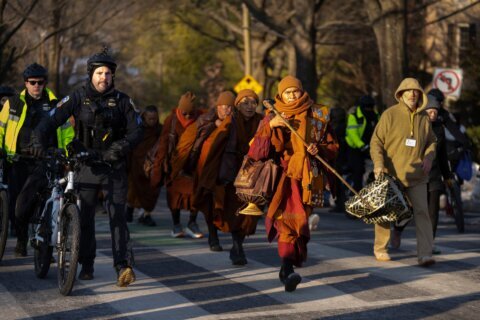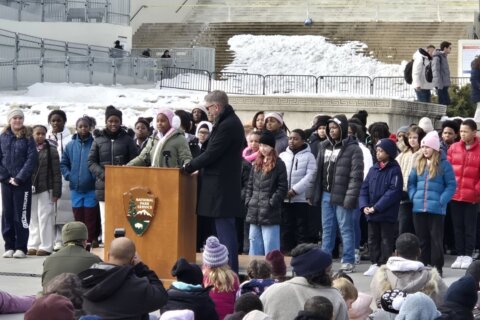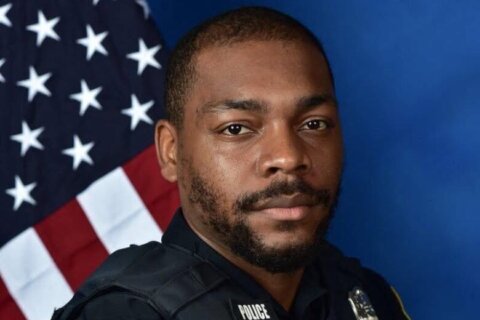As the one-year anniversary of the storming of the U.S. Capitol on Jan. 6 arrives, hundreds of cases against the 613 men and 91 women charged that day continue to slowly move through D.C. courts.
“The D.C. courts have never had this many cases in their docket history, in a year,” said Seamus Hughes, the deputy director of the Program on Extremism at The George Washington University.
He said dozens of individuals have been sentenced so far, with many of the sentences coming after prosecutors got their hands on video evidence showing the accused engaged in the crimes they were convicted of committing.
“Most of these individuals are pleading out guilty because they are looking at the weight of the evidence and saying, ‘I can’t win a case,’” Hughes said.
The video evidence is playing a pivotal role in the prosecution of cases. According to The George Washington University, more than 80% of those arrested were charged in part due to video posted to their social media and other online accounts. But the mountain of evidence has also slowed the cases down because of the time it takes to comb through thousands of hours of videos and more than 250,000 tips.
While hundreds of cases remain unresolved, 170 people have pleaded guilty to federal charges. Others. though, have maintained their innocence, but according to Hughes, the defenses presented so far have not been successful.
“You’re a defense attorney and you’re looking at evidence of your client livestreaming trespassing on Capitol grounds — you have got to throw everything at the wall and see what sticks,” Hughes said.
So far, the sentences received in connection to the riot have ranged from probation to the toughest so far: five years in prison for Robert Scott Palmer, a Florida man who threw a fire extinguisher at police.
- ‘Not taking any chances’: US Capitol Police chief talks security ahead of Jan. 6 anniversary
- PHOTOS: WTOP reporter’s retrospective of the Capitol riots, one year later
- GW professor: Persistent misinformation leading to Capitol riot threatens democracy
- VIDEO: Covering the insurrection
- Can images from Jan. 6 insurrection traumatize your child?
- More coverage of the Capitol Riot
“The sentencings tend to be lesser now because they’re misdemeanors, but we’re going to have more complex … interesting cases come out in the spring when they do the Oath Keepers and the Proud Boys,” Hughes said.
He said that with the two far-right groups, all eyes will be on whether prosecutors can show the events that day were preplanned. Those cases involve major felonies, including conspiracy charges.
“That’s a lot more of discovery, that’s a lot more of a complicated case and that’s going to be where the rubber hits the road in terms of what the prosecution looks like,” Hughes said.
He said there is also interest in seeing if the Proud Boys group remains intact after the courts decide some of their members’ fates.
Hughes said that to him, one of the most interesting aspects of these cases are those who are charged. He said they come from a whole cross-section of America.
“In terms of the makeup of the folks, they’re pedestrian in nature, they’re typical, and that is what makes it so atypical,” Hughes said.
The accused hail from 45 states and the District of Columbia, with the largest numbers coming from three states: Florida (75 defendants), Pennsylvania (63) and Texas (63). They range in age from 18 to 81 years old, and 12% of those accused had military training.
Hughes called what took place a “bug light” for extremism in America.
“So the academic term for it is, it’s a mess, it’s a hodgepodge of extremism,” he said.
When it comes to deterring similar acts in the future, Hughes said he believes the judicial process is helping. He cited the lighter crowds at rallies in support of those arrested for the Capitol siege that were held in the weeks following the riot.
“Less of these merely curious folks, these soccer dads from Missouri, are showing up to these types of rallies, so it does have an effect,” Hughes said.








